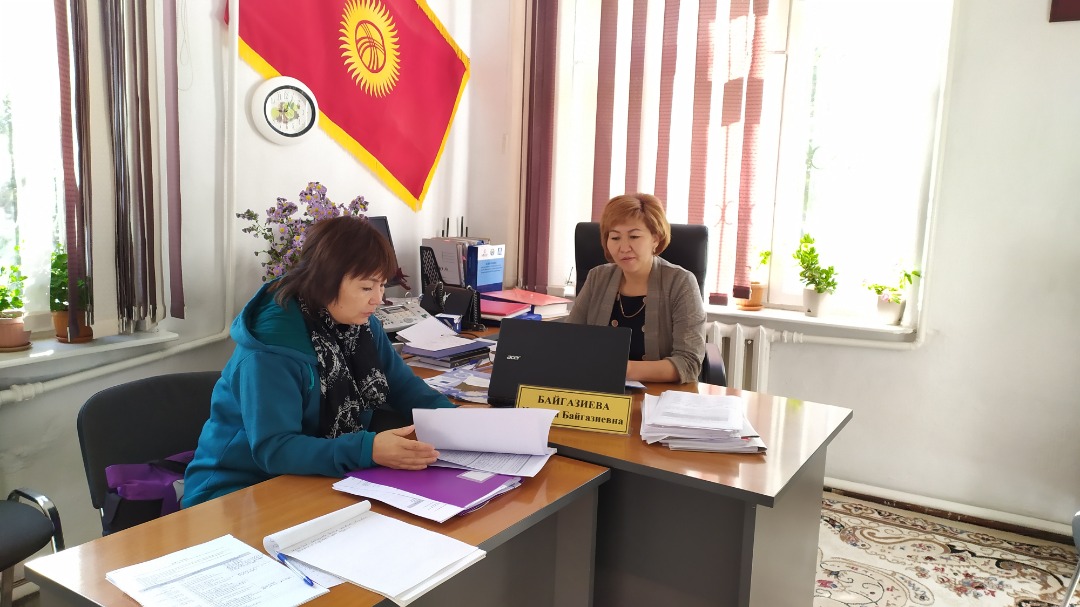Within the framework of the project «Stakeholder Engagement for Uranium Legacy Remediation in Central Asia. Phase II», funded by the European Union, UNDP implements small grants in target communities. To date, seven non-governmental organizations of local communities located near uranium tailings have been selected through an open competition to receive a small grant. The monitoring trip showed how much the selected nongovernmental organizations are interested in implementing small grants.
To date, the implementation of a small grant in Orlovka has been successfully completed.
During the monitoring visit, UNDP Disaster Risk Management Programme staff Nazgul Sharshenova, Project Coordinator, and Meerim Seitova, Administrative and Financial Assistant, conducted training for five non-governmental organizations for the preparation and provision of financial and narrative reporting according to the established requirements, and also checked the progress of the implementation of a small grant in the village of Shekaftar.
We wish success to all selected non-governmental organizations in the implementation of the small grants that have been launched.
About the project:
In the past, Kyrgyzstan played the role of one of the most important sources of uranium and rare earth metals for the USSR. Mining activities began in the 1940s. As a result, about 6,500 hectares of land were exposed to radiation and toxic pollution. Currently, there are 92 landfills for hazardous highly toxic waste.
Activity of the project «Stakeholder Engagement for Uranium Legacy Remediation in Central Asia. Phase II» is aimed at reducing the risk of negative impact of uranium waste on people, livelihoods and the environment by raising awareness and supporting socio-economic and social solutions that are gender-sensitive and risk-sensitive at the community level.

 Locations
Locations















